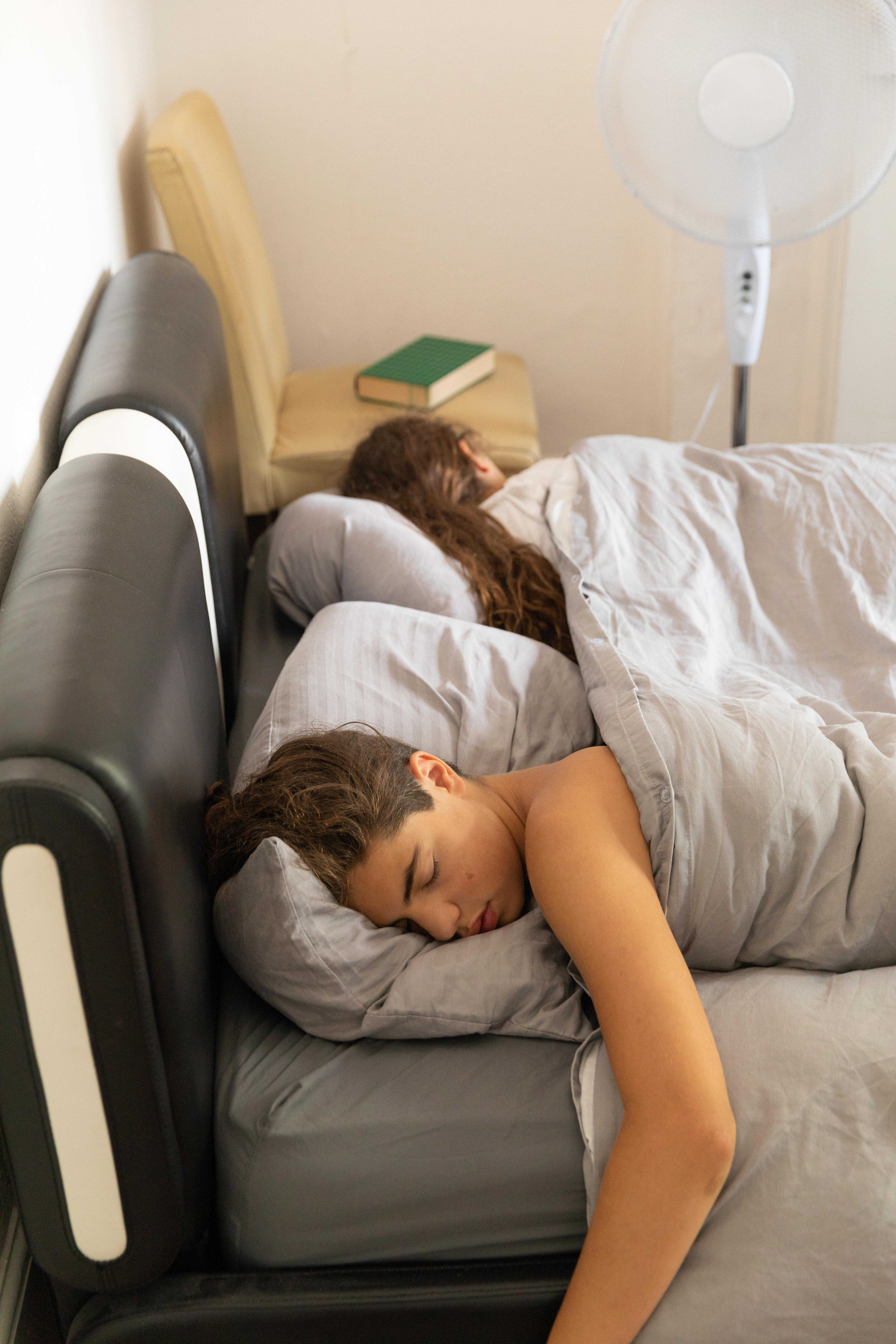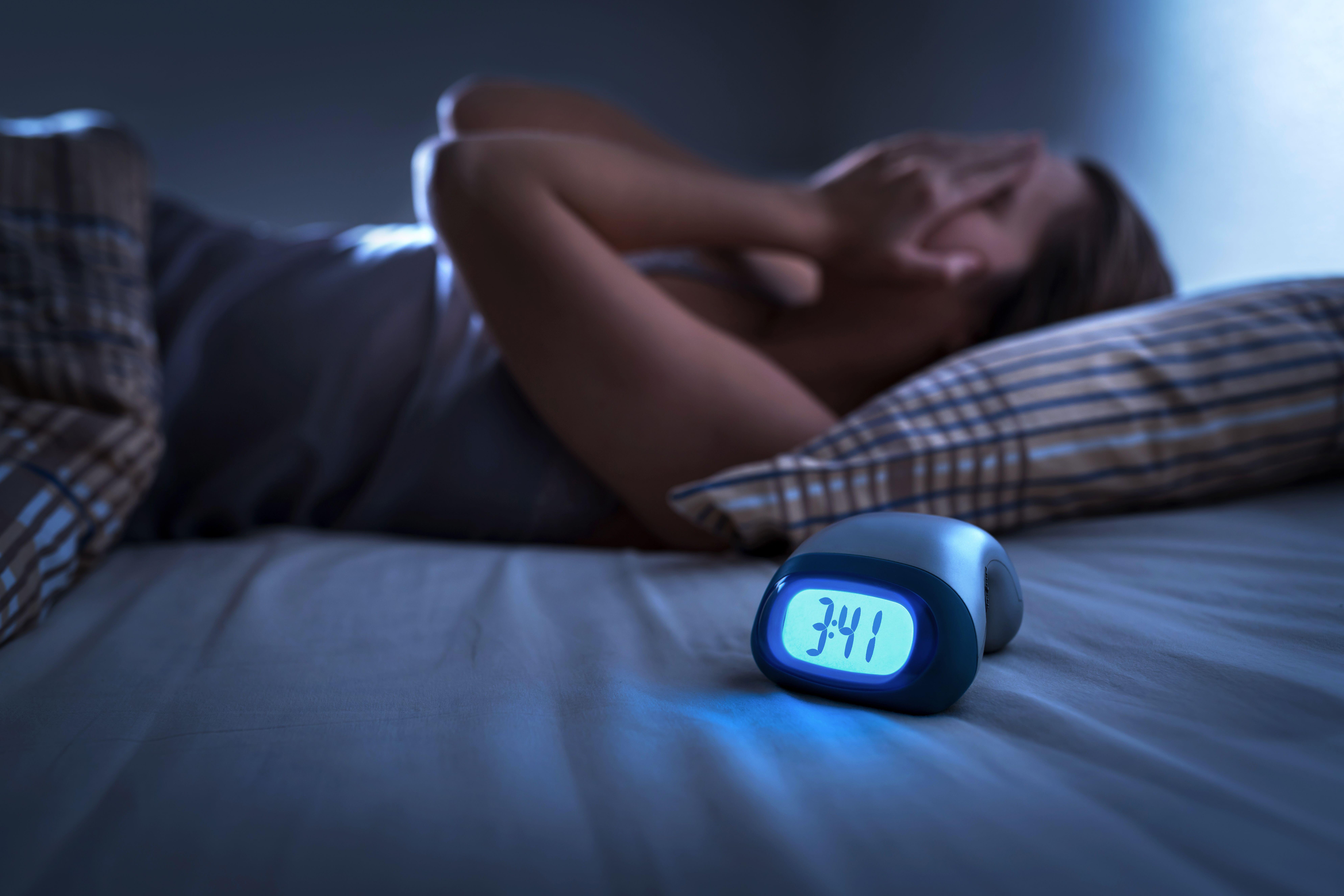
After a day of boiling temperatures, Brits will be wondering just how that will be able to sleep tonight ahead of potentially record-breaking temperatures tomorrow.
Temperatures are set to soar into the high 30s in some areas on Monday, while Tuesday is predicted to be even hotter, with temperatures possibly reaching 40C (104F).
That would be a new record for the UK, beating the 38.7C (101.7F) seen in Cambridge in 2019.
Warmer weather is always welcome – with many of us taking to parks and beaches to get our vitamin D hit – but it could also potentially wreak havoc on our sleep.
Worried about getting a good night’s kip? The PA has compiled a list of sleep mistakes to avoid…
1. Your room is too hot
 A hot and stuffy bedroom might disturb your sleep (Alamy/PA)
A hot and stuffy bedroom might disturb your sleep (Alamy/PA)
“A cooler temperature is optimal for sleep,” advises Dr Rebecca Robbins, sleep scientist and sleep expert to Savoir Beds (savoirbeds.com), who says around 18C or 19C is best.
She explains: “Your body’s ability to regulate temperature is a big part of how it regulates sleep. During rapid eye movement sleep, the brain’s temperature-regulating cells switch off and your temperature is impacted by your surroundings. If your bedroom is too warm and stuffy or your sleeping surface is unable to breathe and disperse moisture, you may begin to sweat and overheat.” She suggests your sleep might be disturbed if the temperature rises above 23.8C.
However, some people may struggle with pollen if they have their bedroom windows open at night.
Max Wiseberg, airborne allergens expert and creator of HayMax (haymax.biz), says: “Put pollen filter window screens over the windows and then you can open the window. If you do have air conditioning, as long as they’ve got good filters, that would help.” He also recommends using an allergen barrier balm around your nose and eyes.
2. You’re going to bed too late

With lighter evenings and warmer weather, you might be spending more time in the garden, or having dinner a bit later.
But Robbins advises us to commit to a bedtime routine and stick to it. “Falling asleep at the same time and waking up at the same time is everything. It allows the body to work with – rather than fight – its natural circadian rhythm, our body’s internal clock that controls the timings of every organ system and bodily process. If we stick to a schedule, our body learns when to expect sleep and wakefulness.”
3. You’re laying awake for hours in the night
 There are few things more annoying than laying awake at night (Alamy/PA)
There are few things more annoying than laying awake at night (Alamy/PA)
Lying in bed feeling hot and bothered at 3am is one of life’s greatest frustrations. However, just hoping to drift back to sleep could be counterproductive.
“It’s something many of us were told to do – stay in bed if we wake up. But it’s actually one of the worst things that we can do if we’re struggling to sleep,” Robbins says.
Instead, she advises getting up after 15 minutes, keeping the lights low and doing some gentle yoga, reading or some non-stimulating tasks – like folding laundry – before returning to bed.
4. Your bedding isn’t up to the job
No matter how hot the weather is, I can’t sleep without covering my body.
— hafsah🦋✨ (@Khasrash__) March 5, 2022
Your mattress and bedding also play an integral role in ensuring you get enough sleep.
“Sleep-related neurons are highly temperature-sensitive so an unsupportive mattress, or a mattress which retains heat, will limit the quality of your sleep,” says Robbins. “A breathable sleeping surface made from natural materials can help prevent you from overheating. Natural fibres are great for wicking away moisture – they are also breathable and allow airflow, keeping you cool during the warmer nights.”
And you might want to rethink your duvet, suggests sleep expert Patrick Ross from Nectar Sleep (nectarsleep.co.uk). “The last thing you want is to be tossing and turning inside a high tog duvet. Instead, make sure you pick up some linen or cotton bedding which is much more breathable and absorbent, to help keep those night sweats at bay.
“Alternatively, say goodbye to a duvet altogether, and take a lesson from our European friends by grabbing yourself a lightweight sheet that will keep you covered – but cool – at night.”
5. You’re dehydrated

Ross says: “Dehydration can negatively affect how well you sleep at night, so staying properly hydrated is key. Don’t guzzle litres of water directly before bed, but keep drinking glasses of cool water throughout the day instead.
“Caffeine and alcohol also dehydrate the body and have a diuretic effect, so if you want to sleep well in the heat, both should be avoided. If you do wake up parched in the middle of the night, avoid the urge to down glass after glass. Take long sips of cool water until you feel satisfied instead.”



Comments: Our rules
We want our comments to be a lively and valuable part of our community - a place where readers can debate and engage with the most important local issues. The ability to comment on our stories is a privilege, not a right, however, and that privilege may be withdrawn if it is abused or misused.
Please report any comments that break our rules.
Read the rules here